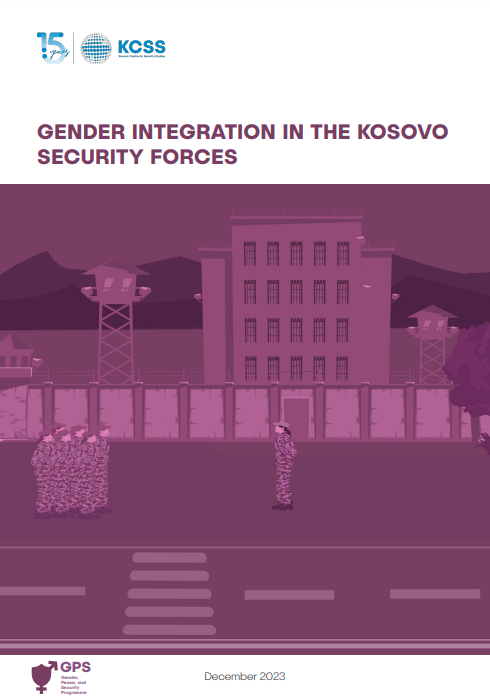20/12/2023

Leadership positions within the Kosovo Security Forces entail distinct challenges for women, shaped by systemic and societal factors. In environments traditionally dominated by men, such as security forces, women frequently face hurdles that impede their professional progress and leadership effectiveness. Efforts are needed to bolster the involvement of women in leadership roles. The dearth of female representation in security force leadership not only constrains mentorship opportunities but also escalates the likelihood of discrimination and harassment, resulting in a less supportive work environment.
The vacuum of a gender-inclusive approach and policies within the Kosovo Security Forces, such as expanding access to closed training and providing accessible childcare, creates substantial challenges for women. Balancing career aspirations with family responsibilities becomes particularly arduous for women aiming to sustain their participation in training programs within this context.
Women within the Kosovo Security Forces often exhibit a consistent reluctance to report incidents of bullying, harassment, or discrimination encountered in the security sector. This hesitation finds its roots in two main factors: the absence of confidential reporting mechanisms in a closely interconnected work environment, leading to fears of identification, and the concern regarding potential biases from colleagues or the broader community. Establishing a secure and supportive reporting environment while streamlining the reporting process is crucial in addressing this issue.
Women within the security sector often confront a difficult choice—prioritizing their professional commitments at the cost of their personal lives or attempting a delicate balance between the two. These domestic constraints significantly impede women’s pursuit of equality in workplaces, notably in sectors like security, where achieving parity demands heightened effort.
The Kosovo Security Forces' absence of gender-sensitive perspectives and comprehensive policies, like optional training frameworks and accessible childcare provisions, presents significant challenges for women seeking to balance careers and participation in training programs alongside their family responsibilities. It's essential to enhance gender sensitivity training across all personnel within the KSF to cultivate a culture centered on respect, empathy, and inclusivity.